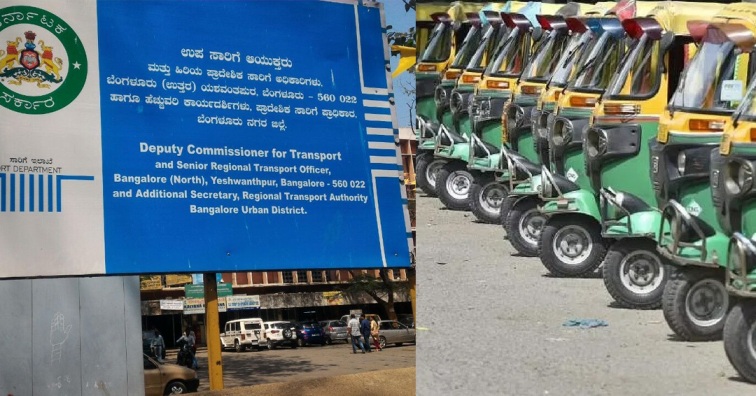Bengaluru Transport Department’s Power Play Strands Commuters and Threatens Livelihoods
Abused power creating dilemma over Bike Taxis, ambiguous fines and impoundment
Bengaluru -24th July 2024- On the morning of July 5, KavinDevaraj, an engineer working in a tech startup in Bengaluru, faced an unexpected situation. He had booked a bike taxi via an aggregator app to reach his office. As soon as his bike taxi arrived, its captain Rahul was surrounded by a traffic police official and several autorickshaw drivers. Rahul’s bike was immediately impounded as part of a massive crackdown that saw 133 bike taxis seized in a single day in the Silicon City. Kavin, who relied on bike taxis for their affordability and convenience, was left stranded and harried, forced to take an auto that charged more than double the bike’s fare. This incident, along with several hundred others, highlights the broader issues at play in Bengaluru's urban mobility crisis.
Turbulent Timeline
The saga of bike taxis in Bengaluru is marked by a turbulent timeline. The Karnataka government, in its 2020 Budget, had proposed the implementation of an Electric Bike Taxi Scheme to improve first and last-mile connectivity and provide employment opportunities. The scheme was notified in July 2021. This policy was hailed as a progressive step towards sustainable urban transport. However, it quickly ran into opposition from the powerful auto-rickshaw unions, which viewed bike taxis as a threat to their business. By 2022, these unions had ramped up their protests, citing unfair competition and safety concerns. The Karnataka High Court intervened with interim orders, preventing the state government from taking coercive steps against the bike taxi operators. But the conflict continued, culminating in the transport department's decisive action in March 2024. The government issued a notification declaring bike taxis illegal, citing the Motor Vehicles Act, clashes between the bike taxi operators and auto drivers, and women’s safety.
Bike Taxis Are Beneficial
Bike taxis have proven to be immensely beneficial for commuters and captains alike. For commuters, bike taxis offer a faster and more economical option compared to traditional auto-rickshaws and cabs, particularly in a traffic-congested city like Bengaluru. They provide a viable solution for short-distance travel, helping reduce travel time and costs significantly. Captains, often young and tech-savvy individuals, appreciate the flexible work opportunities bike taxi services provide, ensuring their livelihood. These services can also help reduce the city's carbon footprint by promoting the use of electric vehicles, aligning with the Sustainable Development Goals. Additionally, bike taxis contribute to decongesting the city’s overcrowded public transport system by offering an alternative mode of transport for first and last-mile connectivity.
Nexus and Autocratic Crackdown
However, the crackdown on bike taxis has again brought to spotlight the harassment commuters and captains face due to the nexus between the transport department and auto unions. Reports of bike taxi riders being threatened, their vehicles vandalized, and facing arbitrarily hefty fines have surfaced. The videos of auto drivers surrounding bike taxis and assaulting the captains have gone viral on social media. Commuters are frequently left without reliable transportation options, especially during peak hours when autos are scarce and demand exorbitant fares. This harassment is not just a physical inconvenience but also a psychological burden, creating a hostile environment for both riders and passengers. The nexus between the transport authorities and the auto unions is aimed at preserving the latter's monopoly, often at the expense of commuters' needs and safety.
https://x.com/navneet_mundhra/status/1815415383064752225
The auto unions' grip on Bengaluru's urban transport is increasingly viewed as monopolistic and mafia-like. These unions, with their powerful lobbying and aggressive tactics, have consistently resisted any competition that threatens their dominance. The unions’ ability to mobilize large-scale protests and exert pressure on policymakers further entrenches their position, making any reform efforts challenging and fraught with conflict. Their opposition to bike taxis is not rooted in legitimate safety concerns but in protecting their business interests. This resistance has stifled innovation in the so-called Silicon City and left commuters with fewer choices, perpetuating a system where auto drivers can dictate terms without accountability. The unions’ influence over transport policies has created an environment where alternative and innovative customer-friendly solutions are systematically undermined, maintaining a status quo that benefits a select few at the expense of the broader public.
Setback for Urban Mobility
The illegal crackdown on bike taxis in Bengaluru is a significant setback for urban mobility. While the auto unions have scored a victory in maintaining their dominance, for the people of Silicon City, it comes with a crisis of commute and livelihood. Further, the government’s actions against the bike taxis have come at the risk of contempt of the Karnataka High Court. Instead of favouring the auto and cab unions, the government must balance the interests of all stakeholders, ensuring that regulations foster competition, innovation, and safety. Without such measures, the city's transport woes will only deepen, leaving commuters like Kavin with limited and often unreliable options. The need for a more inclusive and forward-thinking approach to urban transport policy is evident, one that prioritizes the needs of the public over the interests of powerful lobbies. As Bengaluru continues to grow and evolve, so too must its approach to addressing the complex challenges of urban mobility, ensuring that progress and inclusivity go hand in hand.
*The names have been changed to ensure anonymity.*




